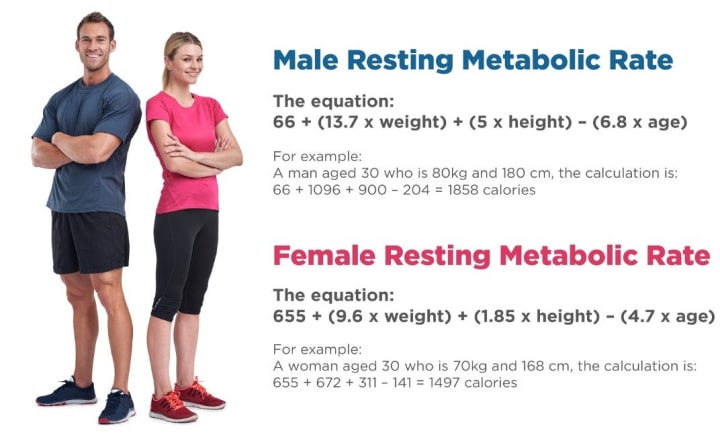
The ketogenic diet may be effective for weight loss due to several factors:
Reduced calorie intake: The keto diet can help to reduce calorie intake by promoting feelings of fullness and satisfaction, which can lead to a reduction in overall calorie consumption. The high-fat and protein-rich foods that are encouraged on the keto diet are often more filling and satisfying than high-carbohydrate foods, which can help to reduce hunger and prevent overeating.
Increased metabolic rate: As I mentioned earlier, the keto diet may increase metabolic rate, which can help the body to burn more calories throughout the day.
Lower insulin levels: The keto diet can help to lower insulin levels, which can have several benefits for weight loss. When insulin levels are high, it can signal the body to store more fat, particularly in the abdominal area. By lowering insulin levels, the keto diet may help to reduce fat storage and promote fat burning.
Reduction in water weight: In the initial stages of the keto diet, the body can rapidly lose water weight due to the depletion of glycogen stores and a reduction in fluid retention. While this is not the same as fat loss, it can contribute to a quick drop in weight that can be motivating for some people.
It's important to note that while the keto diet may be effective for weight loss in the short term, it is not a sustainable or healthy long-term solution for everyone. The keto diet can be challenging to follow, particularly in the early stages, and it may be restrictive in terms of food choices. Additionally, the long-term effects of the keto diet on weight loss and overall health are not yet fully understood. It's important to consult with a healthcare professional before starting any new diet or weight loss program.
YOUR CUSTOMIZED WEIGHT LOSS KETO DIET PLAN AVAILABLE

A. How keto diet Lowers Insulin Levels
The keto diet involves reducing carbohydrate intake to very low levels and increasing fat intake. This shift in macronutrient ratios puts the body into a state of ketosis, where it burns fat for fuel instead of glucose. This can lower insulin levels, which may make it easier to lose weight. Insulin is a hormone that is released by the pancreas in response to an increase in blood glucose levels.
Insulin's main role is to help the body use and store glucose, which is the body's primary source of energy. When glucose levels are low, insulin levels are low, and the body switches to burning stored fat for energy. When you follow a keto diet and significantly reduce your carbohydrate intake, your body starts to produce ketones as an alternative fuel source. Ketones are produced by the liver when there is a lack of glucose in the body. This shift to using ketones for fuel is known as ketosis.
Now, because the body is no longer relying on glucose as its primary source of energy, the demand for insulin is reduced. With less glucose to manage, the pancreas produces less insulin, resulting in lower insulin levels in the bloodstream. Lower insulin levels can be beneficial for weight loss, as insulin plays a key role in the regulation of fat storage. When insulin levels are high, the body is more likely to store excess calories as fat. By lowering insulin levels, the keto diet may help to reduce fat storage and promote weight loss.
YOUR EXACT KETO DIET PLAN HERE

B. How keto diet Suppresses Appetite
High-fat foods can be more filling and satisfying than high-carbohydrate foods, which may help people feel fuller for longer periods of time and reduce overall calorie intake. The ketogenic diet may help suppress appetite in a few different ways:
- High-fat foods are more filling: The keto diet is a high-fat diet, and fat is one of the most filling macronutrients. When you eat high-fat foods, your body releases hormones that signal to your brain that you are full and satisfied. This can lead to eating fewer calories overall, which may contribute to weight loss.
- Increased protein intake: The keto diet is also typically high in protein, which can help you feel full and satisfied. Protein takes longer to digest than carbohydrates, which means that it stays in your stomach for longer and can help you feel fuller for a longer period of time.
- Ketones may have appetite-suppressing effects: Some studies have suggested that ketones, which are produced when the body is in a state of ketosis, may have appetite-suppressing effects. While the exact mechanisms are not yet fully understood, some researchers believe that ketones may act on the brain to reduce hunger and food cravings.
It's worth noting that everyone's experience with the keto diet is different, and some people may not experience a significant reduction in appetite. Additionally, it's important to make sure you are still consuming enough calories and nutrients to support your body's needs, even if you are eating fewer overall calories.

C. How keto diet Increases Metabolic Rate(MR)
When the body is in ketosis, it produces more ketones, which can increase metabolic rate and help burn more calories throughout the day. The ketogenic diet may increase metabolic rate in a few different ways:
- Increased protein intake: The keto diet is typically high in protein, which is important for maintaining and building muscle mass. Muscle tissue is metabolically active, which means that it burns calories even when you are at rest. By increasing your protein intake, the keto diet may help to increase your muscle mass and, in turn, your metabolic rate.
- Increased thermic effect of food: The thermic effect of food (TEF) is the energy that the body uses to digest, absorb, and metabolize the nutrients in the food we eat. Protein has the highest TEF of all macronutrients, meaning that it requires more energy to digest and metabolize compared to carbohydrates and fat. By increasing your protein intake on the keto diet, you may be able to increase the TEF of your diet, which can help to increase your metabolic rate.
- Increased ketone production: When the body is in a state of ketosis, it produces more ketones, which can increase metabolic rate and help burn more calories throughout the day. Ketones are produced by the liver when there is a lack of glucose in the body. When the body is using ketones for fuel instead of glucose, it can increase metabolic rate and lead to more calorie burning.
It's worth noting that while the keto diet may help to increase metabolic rate, the increase is typically modest and varies from person to person.
Additionally, the long-term effects of the keto diet on metabolic rate are not yet fully understood. Finally, it's important to make sure you are still consuming enough calories and nutrients to support your body's needs, even if you are eating fewer overall calories.
LOSE WEIGHT WITH YOUR CUSTOM DIET PLAN

C. How Keto Diet Reduces Water Weight
The keto diet can lead to a rapid loss of water weight in the first few days, which can give people a quick boost in motivation and weight loss. It's worth noting, however, that the keto diet may not be the best choice for everyone, and that long-term adherence to the diet can be difficult.
However, research on the long-term effects of the keto diet is still limited. It's important to speak with a healthcare professional before starting any new diet or weight loss program.
The ketogenic diet can lead to a reduction in water weight in the body, primarily due to the depletion of glycogen stores. Glycogen is the stored form of glucose in the body, which is primarily stored in the liver and muscles.
When you consume carbohydrates, your body converts them into glucose, which is then stored as glycogen. For every gram of glycogen stored in the body, there are about 3-4 grams of water stored with it.
When you follow a ketogenic diet and significantly reduce your carbohydrate intake, your body will start to use up its glycogen stores for energy. As glycogen is used up, the water that was stored with it is released from the body. This leads to a rapid reduction in water weight, which can be noticeable on the scale.
Additionally, the keto diet may help to reduce bloating and fluid retention, which can also contribute to a reduction in water weight. When you consume a high-carbohydrate diet, your body may retain more water due to fluctuations in insulin and other hormones. By reducing carbohydrate intake, the keto diet may help to stabilize insulin levels and reduce fluid retention.
It's important to note that while the reduction in water weight can be significant in the first few days or weeks of starting a keto diet, it is not the same as fat loss. To achieve sustainable and healthy weight loss, it's important to focus on making long-term lifestyle changes that include a balanced and varied diet and regular physical activity.
CLARIFICATION
Please, I wanted to clear up some confusion about carbs...
I'm getting a lot of questions about the difference between NET carbs and TOTAL carbs,
so I thought I would send you this quick email to help make it clear.
Total Carbs - The "total" number of carbohydrates you eat every day. Easy right?
NET Carbs - Take the total carbs that you've eaten, and subtract the amount of fiber.
To ensure you reach Ketosis safely, you must eat 30g total carbs and 20g NET carbs every day.
Most people calculate this incorrectly and think they can eat 50g of carbs, which is wrong.
30 grams total carbs MINUS 10 grams of fiber EQUALS 20 grams of NET carbs.
Getting started with Keto can be a lot to take in...
Luckily, we're here for you. >>> HERE
All our Keto meal plans are designed with the proper amount of carbs.
(As well as the correct amount of protein and fat for your specific body type).
Oh, and we completely personalize the plan for your likes and dislikes.
Let me do the hard work for you and made it as easy as possible to get started. Get your plan that guarantees to put you into Ketosis and just follow along...
About the Creator
HALFAHUB
Happy Life Fitness Associate Hub (HALFAHUB) is a general health and fitness poised group enthused with desire to bring every refined, researched and approved knowledge on health and wellness through all niches that encourages everyone.






Comments
There are no comments for this story
Be the first to respond and start the conversation.